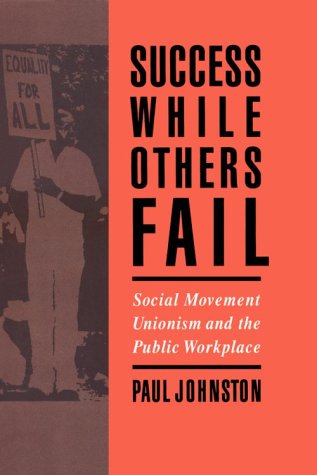ILR Press Books
1 total work
Success While Others Fail: Social Movement Unionism and the Public Workplace
by Paul Johnston
Published 31 December 1994
Paul Johnston tells the stories of four groups of workers, two in local government and two in the private sector. He examines complex patterns of difference related to gender, race, occupation, and public or private employment. Each group of workers engaged in some form of what Johnston calls "social movement unionism, " including an early "Justice for Janitors" campaign. These movements reflect the efforts of individual organizers, such as Maxine Jenkins, key organizer for the first comparable worth strikes in both public and private sectors. They are also shaped, Johnston argues, by their different historical and structural contexts. Success depends in each case, he concludes, on the fit between these conditions and the model of unionism employed. Johnston examines in detail the interaction of public and private labor movements, gender relations, and urban life and politics. His book will interest not only industrial relations scholars but also political scientists, social movement scholars, organization theorists, students of public administration, urban sociologists, and those who study comparable worth.
